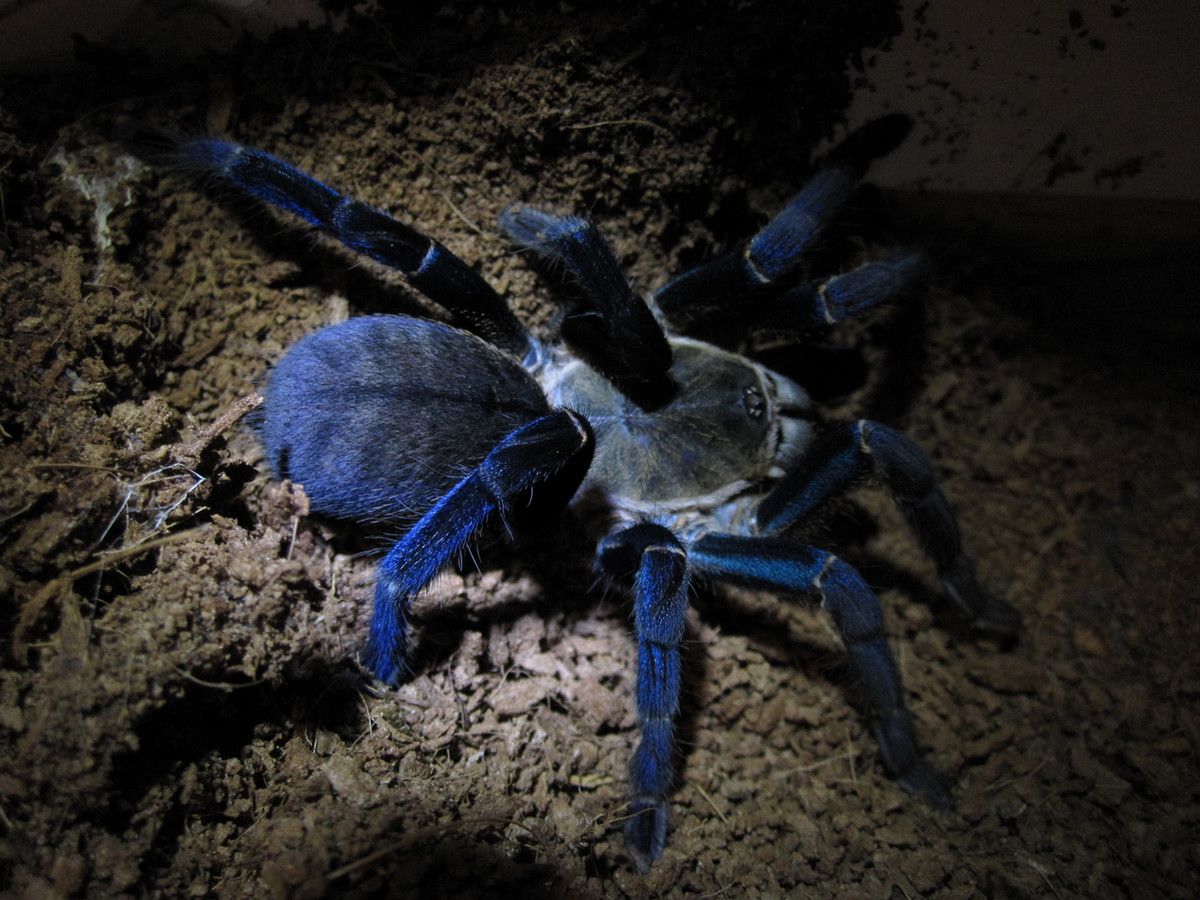Blue jays, poison dart frogs, and peacocks—each of these animals is distinct for their same vibrant color. But have you ever seen a blue spider?
It turns out that many tarantulas are blue. One of the best known is the cobalt blue tarantula, a creature named for the richly hued hairs that cover its legs and body. These hairs might look black upon first glance, but under the right light, they shine a brilliant blue. Despite this eye-catching coloration, it’s one of the rarest types of tarantulas. And with a leg span of around five inches, this spider would fit comfortably in your hand.
Not that you’d want to hold one in your hand. The cobalt blue tarantula is extremely aggressive, using biting as its main defense. Ouch! Luckily, though, the bites are painful but normally not deadly to humans, unless you’re allergic to the venom.
Like other tarantulas, this spider is nocturnal. It makes its home in southeast Asia’s tropical forests, where it likes to live alone in a burrow dug into the ground. When prey comes along and blunders into the burrow’s silk, watch out! The tarantula will dart out of its burrow and grab the unlucky victim, biting down with its fangs. The prey, often an insect or small reptile, is paralyzed thanks to the spider’s venom, and happily dispatched by the hungry arachnid.
Despite its aggression, the cobalt blue tarantula can be a popular pet, though it can also be a commitment. Males usually have a lifespan of about 10 years, but females can live twice that long, sometimes reaching 24 years old.










